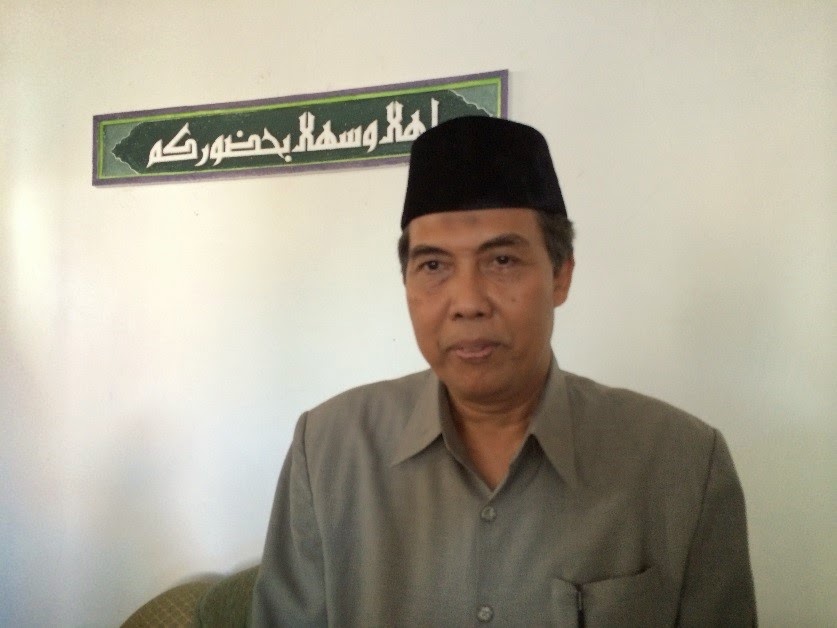 |
|
Kyai Subhan at the pesantren in Brebes, Central Java
© UNICEF Indonesia/2014/Iwan
|
BREBES, Indonesia, April 2014 - Subhan
Makmun, known as Kyai Subhan, looks like a typical traditional Islamic scholar
or ulama. He lives among thousands of his students in an Islamic boarding school
in Brebes, Central Java. He wears a traditional sarong and a black Malay cap.
But looks can be deceiving. Subhan’s view
on Islamic Syariah is very progressive. “Islam is not narrow but broad,” he says.
Kyai Subhan is one of the most revered
ulamas in Central Java thanks to his vast knowledge of Islamic jurisprudence.
But classical Islamic books are not the only books he reads. He says he’s read
“Facts for Life”, a book on child care published by UNICEF in association with
several other UN agencies.
The book contains information on topics like safe
motherhood, and breastfeeding and is written in simple language to be easily
understood by parents, young people, and teachers. Kyai Subhan says he often
refers to it when preaching on health and nutrition.
“Every suckling by an infant of his or
her mother’s breast dissolves the mother’s sin for one day.” “Her child should
be at least thirty months old before a mother can be pregnant again with the
next child.” Kyai Subhan uses these Hadiths in his sermons to promote good
nutrition and health.
Better
Nutrition
Kyai Subhan is the leading figure among
hundreds of religious leaders who are promoting good nutrition and health
practices in Brebes, the largest and most populated district in Central Java with
a high stunting rate.
More than 35 per cent of children under the age of five are
stunted in Indonesia – they suffer from a reduced growth rate because of
malnutrition. The effects of stunting are lifelong
and irreversible. Stunted children are more likely to be less healthy, and have
reduced cognitive skills as adults.
For the last two years UNICEF and its government
counterparts have been piloting a nutrition-focused conditional cash transfer
project to reduce stunting in Brebes.
In the pilot, UNICEF has partnered with
Nahdatul Ulama (NU), the largest Muslim organization in Indonesia with 40
million followers, to train more than 150 local religious leaders on nutrition
and health. In turn, they spread nutrition and health messages to the
community.
 |
|
Village Imam Dunarso ©UNICEF Indonesia/2014/Iwan Hasan
|
Kyai Subhan’s example is followed by fellow
religious leaders like Dunarso. He is a village Imam who leads various religious
rituals such as the baby shower and aqiqah, a ritual a week after a baby is
born. “In the baby shower, I usually
remind the mother to give the baby colostrum. It is the first immunization to
protect the new born against diseases,” he says.
“In aqiqah, I ask the parents to only
feed their new born with breast milk for the first six months, and nothing
else. I ask them not to give formula milk. Breast milk is the most complete nutrition
that contains protein, lactose and antibodies,” he says.
Dunarso’s new knowledge has been
welcomed by his community. “I and the other mothers in Siandong village didn’t
expect him to be able to talk about things such as stunting and exclusive
breastfeeding. We’re really happy to learn about these things,” says Endang,
one of the village women who attends weekly Quran classes facilitated by Dunarso.
Almost 90 per cent of Indonesia's population of 250 million are Muslims, making it the biggest Muslim country in the world. UNICEF's work with religious leaders and faith-based organisations is a key component in the strategy to reduce stunting since not only mothers but also fathers, the extended family and the community are involved in deciding on nutrition practices.
UNICEF's partnership with NU is a good example of how positive behavior and social norms can be developed and sustained.
